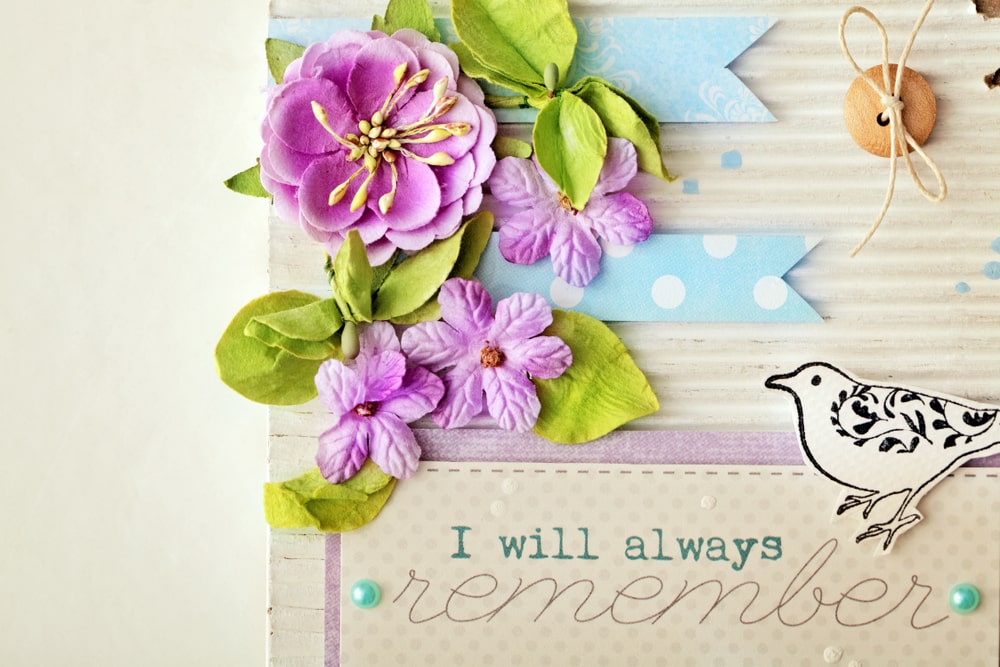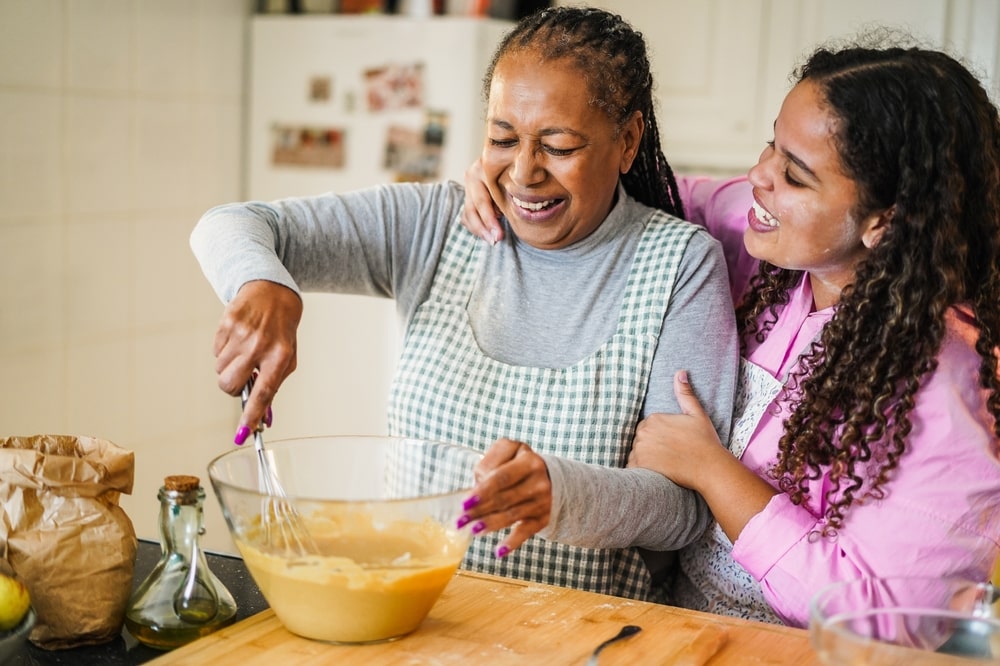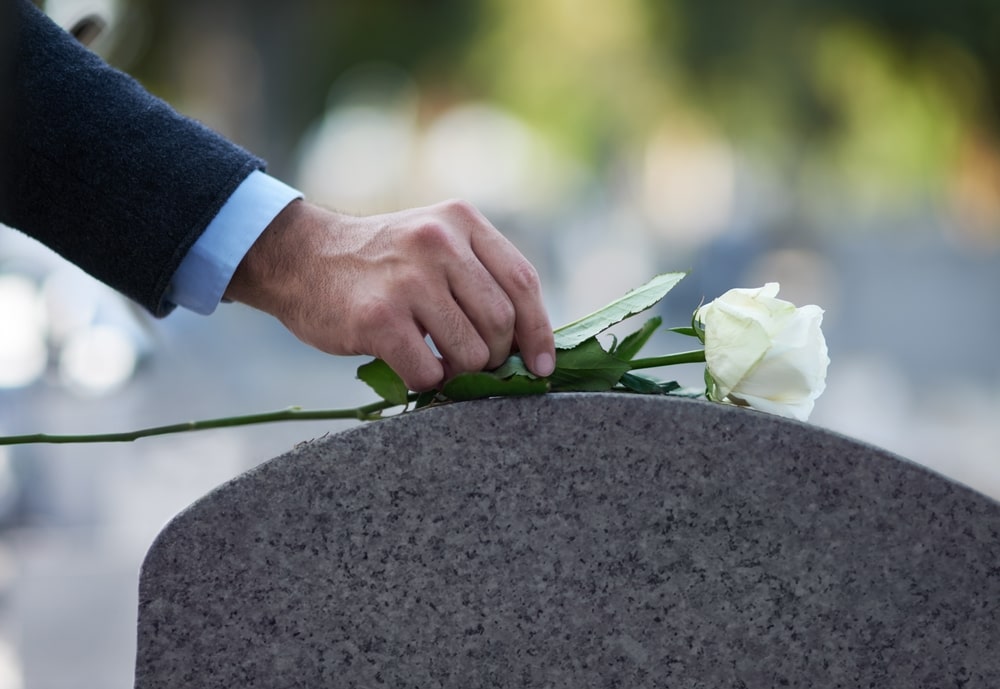
After the death of a loved one, you may feel a little (or a lot) stressed, worried, sad, anxious, or depressed. Thankfully, art therapy is a proven relaxation method, and it’s easily accessible. With art therapy, you engage in creative activities, like journaling, singing, dancing, and yes, even coloring. In recent studies, it was discovered that coloring can reduce stress, depression, anxiety, and even blood pressure. All of these are excellent reasons to consider purchasing an adult coloring book and adding a little creativity to your grief journey.
To learn more about the benefits of coloring, take a moment to read How Coloring Helps You Grieve.
10 Adult Color Books for Your Grief Journey
Each of these 10 adult coloring books focuses specifically on grief and offering encouragement and solace for the hurting heart. Let’s take a look.
1. Remember Grief is Love
With 50 different floral designs, this coloring book will act as a comforting tool throughout the grief journey. Filled with encouraging quotes and therapeutic images, this coloring book is perfect of anyone who is grieving – friend, mother, husband, or even yourself. It is printed on premium white paper with large font and is available in either paperback or hardback.
Click here to view the coloring book.
2. Grief: Spiritual & Comforting Coloring Book for Teens & Adults
In this coloring book, you will find 35 different designs. Their images range from delightful landscapes, to flowers, animals, and inspiring quotes. And for those who also like to write down their thoughts, journaling space is provided throughout the book. This will give you space to share any memories that arise as you color. Another bonus – each page is backed with black paper to prevent distracting bleed-through!
Click here to view the coloring book.
3. Grief in Color
“Grief in Color” is quite versatile, including 100 pages of encouraging quotes, beautiful coloring pages, and journal writing prompts. With its compact design (a 6×9 inch notebook), you can easily carry it with you wherever you go. The coloring pages do include black backing to assist with bleed-through. As you work through its pages, this coloring book will help you calm your mind and really engage with your feelings of grief.
Click here to view the coloring book.
4. My Healing Journey: 29 Coloring Affirmations for a Grieving Heart
Created after the loss of a very dear friend, the author says that for her and her daughter “the simple act of coloring, with its steady strokes and vibrant hues, became a haven for us — a way to bond, reflect, and begin the journey of healing.” With its 29 illustrated affirmations, this coloring book will provide a comforting refuge when the waves of grief come crashing in. There’s plenty of space on each page for you to color, and the single-sided pages allow you to color with any medium – pens, pencils, or even markers.
Click here to view the coloring book.
5. Be Still & Know Coloring Book
For those who find comfort in the Book of Psalms, this coloring book may be for you. With 60 full-size coloring pages, the quotes included are well-known and beloved messages of peace and rest for the weary. There are even two pages of small cards you can color, cut, and share with friends! With its single-sided pages made from thick cardstock, feel free to get as creative as you want on the journey toward healing.
Click here to view the coloring book.
6. Remembering Mom
Losing your mom can be an absolutely devastating loss. Oftentimes, moms have been by your side for your entire life and to move forward without them may feel impossible. With its comforting messages, this coloring book will help you honor and remember your mom, allowing you to express the love and loss that you feel. It consists of 24 coloring pages that give you space to personalize your experience by adding notes, pictures, or even drawings.
Click here to view the coloring book.
7. Remembering Dad
Written by the same author as “Remembering Mom,” this coloring book instead focuses on the special relationship between a father and his children. Whether you are grieving the loss of a father, grandfather, or father figure, the whimsical designs will help you process the grief you are feeling after losing a dad you love. Additionally, the pages are set up to allow you to frame and display any designs that bring particular comfort.
Click here to view the coloring book.
8. Reflections of Love
In this book, you will find quotes and verses combined with a whimsical illustration style. Its 50 coloring pages are designed to provide a comforting, healing, and relaxing experience. You will have time to thoughtfully reflect on the loss you’ve gone through and remember the person you love. Coloring will not stop the pain you are feeling. But it can help ease it by allowing you to creatively express what you’re feeling in a safe and private space.
Click here to view the coloring book.
9. My Grief Journey: Coloring Book and Journal (for Grieving Parents)
Losing a child is one of the most difficult things a parent will ever face. Author Laura Diehl knows that personally. In this coloring book, she uses her own experience of child loss to provide comfort and insight to other parents going through the unimaginable. With a strong emphasis on the Holy Bible and her faith, Diehl uses hand-drawn art and journal prompts to help parents do the work of grief and find a way to move forward following the death of a child.
Click here to view the coloring book.
10. Colors of Loss and Healing
In this book designed by a grief counselor, you will find 40 lovely designs intended to help you quiet your mind and confront the pain of loss in a way that is both kind and productive. The grief journey takes time – there is no specific timeline. As you journey toward healing, this coloring book will offer a place of contemplation, solitude, and reflection that will bring more peace to your everyday life.
Click here to view the coloring book.

Healing after loss takes time. However, with so many coloring books to choose from, you are sure to find solace and encouragement for many weeks, months, or even years, to come.
If you’d prefer coloring books not specifically related to grief, here are a few highly rated options you might consider: Secret Garden, Worlds of Wonder, 100 Flowers, Disney Dreams: Thomas Kinkade, or 100 Amazing Patterns. There are, of course, so many others available online and in stores.
Whatever you decide, the benefits of coloring will remain the same. Simply choose what seems best to you and use coloring to strengthen your heart and mind for the grief journey ahead.
*Funeral Basics does not receive commission for or endorse any of the affiliated product links.








































































